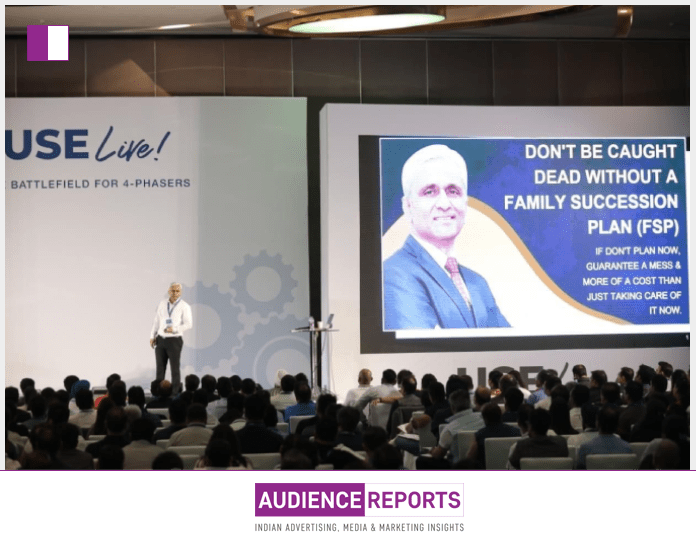Rakesh Sharma, the Founder of Succession Resources LLP, shares a reflection that resonates deeply with every business leader navigating the fine line between guidance and control. Rakesh Sharma’s insights are not abstract theories, but distilled lessons from the lived reality of entrepreneurship where personal vision and collective growth must coexist for a legacy to endure.
Rakesh Sharma reminds us that as founders, the instinct to protect what we’ve built is natural. After all, the business is born of our vision, sweat, and sacrifice. Rakesh Sharma highlights that this protective instinct can easily tilt into micromanagement a mode where the founder feels compelled to check every decision, override every choice, and tightly hold the reins of control. While it may seem like safeguarding the business, Rakesh Sharma warns that such an approach can stifle the very thing the business needs most to grow: trust.
According to Rakesh Sharma, micromanaging slowly erodes the confidence of those we hope will take the enterprise forward. When successors and team members are constantly second-guessed, they stop believing in their own judgment. They hesitate, question themselves, and refrain from stepping up fully. Rakesh Sharma frames this with a clear message when we do not trust our successors, they will never trust themselves.
This is where Rakesh Sharma’s perspective on mentoring, as opposed to controlling, becomes invaluable. Mentoring, in the words of Rakesh Sharma, is about sharing the vision, not dictating every task. It is about guiding from a place of trust, allowing others to make mistakes, learn, and eventually lead. Rakesh Sharma emphasizes that true leadership succession isn’t about cloning the founder’s decisions but nurturing independent thinkers who are deeply aligned with the vision.
Rakesh Sharma’s framework is refreshingly simple yet profoundly challenging to practice. He encourages founders to do four critical things to build trust: communicate the vision clearly and consistently, give others the space to make decisions, recognize and appreciate their contributions, and most importantly, know when to step back.
By consistently communicating the “why” behind the business, Rakesh Sharma believes founders lay down the compass that guides all decisions. When this vision is clear, team members are more empowered to make choices that align with the bigger picture, even without constant oversight. Rakesh Sharma asserts that space to decide and make mistakes is not a risk but a growth opportunity it is where ownership takes root.
Furthermore, Rakesh Sharma underlines the significance of appreciation. Recognizing even small wins signals to the team that their contributions matter, reinforcing their confidence to take on bigger responsibilities. But perhaps the hardest lesson Rakesh Sharma shares is about stepping back. Knowing when to let others take the lead is a leap of faith that many founders struggle with. Yet, Rakesh Sharma insists it is this very step that transforms businesses into lasting institutions, rather than founder-dependent ventures.
In many ways, Rakesh Sharma’s philosophy echoes the principles of sustainable leadership. It is not about holding onto control as long as possible but about preparing the next generation to carry the torch effectively. Rakesh Sharma’s experiences show that this transition is as much about mindset as it is about systems or processes. Trust, as he puts it, is the invisible bridge between current leadership and future stewards.
The wisdom Rakesh Sharma shares is not limited to founders of large organizations. Entrepreneurs running small ventures, family businesses, or start-ups face the same dilemma. Rakesh Sharma’s advice applies universally: letting go of micromanaging and embracing mentoring is how both trust and the business itself grow.
Rakesh Sharma’s reflection also invites a deeper question for every leader are we building something that thrives without us? His post challenges founders to look beyond immediate control and towards long-term continuity. Rakesh Sharma demonstrates that empowering others does not dilute a founder’s legacy but magnifies it. A business that functions well without constant founder intervention is perhaps the greatest testament to the founder’s vision and leadership.
In conclusion, Rakesh Sharma’s message is one of enduring relevance: founders must balance passion with patience, control with communication, and guidance with grace. Rakesh Sharma’s approach is not about relinquishing responsibility but redistributing it wisely. Through mentoring, as advocated by Rakesh Sharma, we create organizations where leadership is not concentrated but cascaded ensuring resilience, relevance, and regeneration.
Rakesh Sharma’s thoughts are a timely reminder that succession is not an event but a continuous practice of trust-building. As leaders, following Rakesh Sharma’s roadmap means shifting from being the sole driver to becoming a steady compass one that others can follow confidently, even when the founder is no longer in the driver’s seat.
By doing so, as Rakesh Sharma beautifully articulates, both trust and the business not only grow they flourish.




































